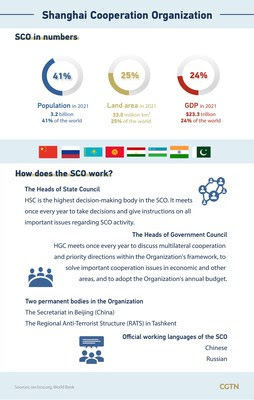Gathered to pay tribute to the memory of Her Majesty Queen Elizabeth II, General Assembly delegates and senior officials today recognized the seven decades of leadership and service the Queen gave her country, the Commonwealth of Nations and the world, as well as her steadfast belief in multilateralism and the enduring values that inspired the Charter of the United Nations.
Opening the meeting, Csaba Kőrösi (Hungary), President of the General Assembly, reflected on Queen Elizabeth II’s leadership — a quality always needed, particularly in times of crisis. During her 2010 visit to the United Nations, the Queen told the Assembly that “some attributes of leadership are universal, and often about finding ways of encouraging people to combine their efforts, their talents, their insights, their enthusiasm and their inspiration, to work together”.
She devoted her life to public service and to improving the lives of people within the Commonwealth, he noted, offering his sincere condolences to the Royal Family, the people of the United Kingdom and the member States of the Commonwealth of Nations. At his request, delegates then stood and observed a minute of silence in tribute to the memory of Her Majesty Queen Elizabeth II.
United Nations Secretary-General António Guterres said the sun has set on a most extraordinary reign of Her Majesty Queen Elizabeth II. A pillar on the world stage for more than 70 years, she acceded to the throne during the era of Churchill, Truman, Stalin, Mao and De Gaulle. She was an anchor of stability across decades of often turbulent history. During the first part of her reign, many nations gained independence from Britain. The Commonwealth, a diverse multilateral group, was formed.
“Queen Elizabeth defied geopolitical gravity,” he said. A consummate diplomat, she often wielded her skills as the only woman in the room. Understanding that formal bonds and agreements are only half the story, she spoke at thousands of public appearances about friendship and strong ties between nations. In her last address to the Assembly 12 years ago, Queen Elizabeth II called for tomorrow’s world to work together as hard as ever “if we are truly to be United Nations”. Queen Elizabeth II worked as hard as ever until her final hours, the Secretary-General said. “Let’s honour her by working as hard as ever to be truly United Nations.”
Barbara Woodward (United Kingdom), thanking Member States for their expressions of sympathy and condolences, said this is a time of deep sadness, but also of reflection and gratitude for a life of service that touched so many people across the world. Quoting the late Secretary-General, Dag Hammarskjöld, she said: “We’re not permitted to choose the frame of our destiny, but what we put in it is ours.” Queen Elizabeth II’s broadcast from South Africa in 1947 made clear what she planned to put into that frame, saying: “My whole life, whether it be long or short, shall be devoted to your service.” Queen Elizabeth II was simply the United Kingdom’s greatest diplomat, dedicating her life to fostering peace and friendship through the Commonwealth and the world.
Ms. Woodward also recalled the Queen’s commitment to the United Nations from its very beginning, where, in 1946 as a young princess, she welcomed delegates to the first meetings of the United Nations in London as the world recovered from the horrors of the Second World War. Queen Elizabeth II travelled to over 100 countries, forging bonds in every country she visited. During one visit, she said: “With the benefit of historical hindsight, we can all see the things which we would wish had been done differently or not at all.” Faced with the complexity of history, Queen Elizabeth II demonstrated the importance of forbearance and conciliation, of being able to bow to the past, but not be bound by it. It is that sentiment that brought the world together to found the United Nations and work for peace, human rights and development.
Speaking for the African Group, Dharamchand Koonjul (Mauritius) spoke of Queen Elizabeth II’s lasting and strong connection with Africa, noting she undertook numerous visits to its countries and forged friendships as independence swept through the continent. Although colonialism in Africa was accompanied by violence and atrocities, the Queen not only built bridges throughout the continent, but also strengthened relations. During her reign, the Commonwealth grew from 8 to 56 countries, representing one third of humanity. She was able to win over hearts and befriended the continent’s leaders with whom she had lasting and strong bonds of friendship. Her legacy and spirit will endure the test of time, he said.
Antonio Manuel R. Lagdameo (Philippines), speaking for the Asia-Pacific Group, recalled the many visits of Queen Elizabeth II to the Asia-Pacific region. She worked for causes aimed at improving the lives of the poor and the marginalized around the world and demonstrated that it is possible to improve human relationships and elevate the human condition. “With her passing, we are thoroughly inspired by her enduring legacy and life dedicated to service,” he said, adding that today the region renews its commitment to building a better, more peaceful and inclusive world for all.
The Chair of the Group of Latin American and Caribbean States, Sunil A. Sitaldin (Suriname), said that, as the longest-serving monarch in British history and the longest recorded female Head of State in history, she successfully adapted the monarchy to a changing world. At the same time, she maintained traditions associated with the Crown. She also steered the institution as it evolved into a forum for effective multilateral engagement with tremendous potential for socioeconomic progress.
Maria Theofili (Greece), speaking for the Western European and other States, highlighted Queen Elizabeth II’s tremendous wisdom, charisma and a rare and remarkable dedication to her duty and responsibilities. She was also a true friend and staunch supporter of the United Nations. A staunch advocate and supporter of multilateralism, international cooperation and bridge-building among nations, she had a deep understanding of world affairs. “Her example and lifetime achievements will forever hold a prominent place in our collective history,” she said.
Speaking for the European Union, Jakub Kulhánek (Czech Republic) pointed out that the Queen, having witnessed war in Europe, was a source of strength and inspiration, contributing to the reconciliation of Europe after the devastation of the Second World War. She was a true believer of cooperation among nations and multilateralism and always remembered the enduring values that inspired the Charter of the United Nations. “Grief is the price we pay for love,” Queen Elizabeth II once said. The world, he noted, is now experiencing that grief.
Speaking for the Commonwealth member States, Claver Gatete (Rwanda) said his country and the “Commonwealth family” viewed Queen Elizabeth II as an extraordinary leader who “championed our diversity and unity [and] our development and our cause”. Today the Commonwealth family of 56 countries spans Asia, Africa, the Pacific, Europe and the Americas with a combined population of 2.5 billion people. Queen Elizabeth II led and guided its member States as they continue to reimagine the Commonwealth for a changing world.
Brian Wallace (Jamaica), also speaking on behalf of Saint Lucia, Saint Vincent and the Grenadines, Saint Kitts and Nevis, the Commonwealth of the Bahamas and Belize, said the Queen remained a constant amidst key moments in history, including the end of the cold war, the evolution of the Commonwealth, and most recently, the onset of the COVID-19 pandemic. The most travelled of her British predecessors, she visited more than 100 countries during her reign, including many in the Caribbean, and supported countless charities and programmes. She was “a symbol of stability and dignity for the people of the United Kingdom, manifesting quiet and confident strength, accompanied by a calm walk and a gracious demeanour”, he said.
Satyendra Prasad (Fiji), speaking for the Pacific Islands Forum, said Queen Elizabeth II’s frequent visits to the Blue Pacific Continent demonstrated a life‑long interest in the region’s development and a deep respect for its diverse cultures and traditions. Her visits energized community action and development interventions that lasted many years after her departure — a mark of true leadership. Her insights reflected a keen understanding of the Pacific and a profound sense of empathy for the region’s concerns. He wished King Charles III a long, peaceful and rewarding reign, noting, among other things, the King is a keen supporter of many environmental and climate adaptation works across the region.
Linda Thomas-Greenfield (United States) said Queen Elizabeth II was a true diplomat, meeting with 14 United States Presidents and participating in four State visits, five State dinners and two unofficial visits. “This is a lot of diplomacy, and the United States is truly grateful for every minute of it,” she said. Queen Elizabeth II, a staunch supporter of multilateral institutions, stressed the importance of nations working together to safeguard the hard-won peace of the Second World War, she added.
Robert Rae (Canada) said: “In saying farewell to Her Majesty, we are thanking a person, an individual who showed her commitment to the public good of our countries and to the world on a daily basis, but we are also expressing our deep respect for our institutions, for the rule of law, the celebrations of diversity and artistic expression, the infinite variety of lives well lived that are the hallmark of democracies.”
Also speaking today were representatives of Australia, Papua New Guinea, Belize, Antigua and Barbuda, New Zealand, Samoa (on behalf of the Pacific Small Island Developing States), Saudi Arabia (on behalf of the Gulf Cooperation Council,), and Tunisia (on behalf of the Arab Group).
The General Assembly will meet again at 11 a.m. on Friday, 16 September, to continue its work.
Source: United Nations


